|
Pastor Hal mentioned in his pastoral letter that this recent decision of the Supreme Court could be felt as a gut-punch. Indeed, I felt it that way along with several more in recent years; a deadly riot against a secure election, the functional end of the Voting Rights Act, a President telling a sexist and racist group to stand-by, and more. There is a thread in all of these happenings. Pulitzer Prize winning author Isabel Wilkerson in her book Caste noted the power of something called “dominant group status threat”: the sense that the out group is doing too well and represents a threat to the dominant caste. For example, the single strongest demographic predictor of those who broke into the Capitol during the January 6th insurrection was if they lived in a county not where Trump won big, but where Biden won and where there was a significant decline in the percentage of the non-Hispanic white population. Make America Great Again appeals, of course, to a past idealized vision of America which inevitably is an America which was more racist, sexist, heterosexist, and generally less inclusive than the one we have and the one that is emerging. The appeal and the sinful temptation is to support one’s self esteem and to manage the anxiety of change, whether social, religious, economic, racial or environmental, with an appeal to an old status quo of white, male, Christian parental authority (aka patriarchy). Enter the recent Dobbs decision overturning Roe v Wade. New York times reporter Adam Liptak, who covers the Supreme Court, describes the five Republican-appointed justices besides Chief Justice John Roberts as “an impatient, ambitious majority,” a majority created by those driven by “dominant group status threat” energy using whatever means necessary to take us back to some version of that past. In such times, let us be clear that this is not the Way of Jesus. In such times, let us be faithful to the God of Liberation and Justice. In such times, let us keep on keeping on, toward the Beloved Community. In the midst of all the gut-punches I have been drawn to a poem by the late American essayist and poet Adrienne Rich and I offer it as an inspiration to faith: My heart is moved by all I cannot save: so much has been destroyed I have to cast my lot with those who age after age, perversely, with no extraordinary power, reconstitute the world. - JT AuthorThe Rev. J.T. Smiedendorf has been a UCC minister since 2001, serving churches in Oregon, Colorado, Wyoming, and Washington. He has a particular passion for reclaiming the earthy, embodied, and experiential aspect of Christian spiritual practice. He and his wife Allison are co-founders of The Sanctuary for Sacred Union, an inter-spiritual initiative, focused on spiritual growth, wholeness, and transformation. He will be our Bridge Associate Minister until a new settled Associate Minister is called. Dear Plymouth Family,
None of us is surprised about Supreme Court ruling overturning the constitutional right to an abortion guaranteed by the Court back in 1973 in Roe v. Wade. But to some the ruling probably feels like a gut-punch. There are macro issues at stake in this ruling, some of which are not immediately apparent. In the short term, women in roughly half the states that comprise our union will lose access to safe, legal abortions. But the larger issues will continue to ripple for years into the future. One of those issues is the right of women to determine the course of their own health. No one is challenging a man’s right to choose a vasectomy — even though the Roman Catholic Church opposes it. Pope Paul VI’s encyclical said that vasectomy “is equally to be condemned” as is abortion. Yet, we do not hear many (or any) voices in our nation decrying vasectomy. If we can deny a woman’s right to choose, what other rights is our nation prepared to deny? According to the National Institutes of Health, “Black women have been experiencing induced abortions at a rate nearly 4 times that of White women for at least 3 decades, and likely much longer…. In the current unfolding environment, there may be no better metric for the value of Black lives.” Is it a coincidence that the Supreme Court ruling will affect Black women four times as much as it does White women? Justice Clarence Thomas, in a concurring opinion, said that the Supreme Court “should reconsider” its past in codifying rights to contraception access, same-sex relationships and same-sex marriage. I know some of our LGBTQ members are already feeling the rumblings of this opinion. It’s Pride month, and it is probably no coincidence that hate-filled vandals destroyed the rainbow flags on our Prospect Road sign this week. Another implication beyond abortion itself is the brokenness of the national process of judicial confirmation. Has the court become over-politicized? Some would say so. It will be interesting to see how we navigate the course ahead, when Gallup shows that 80% of Americans support legal abortion. Where does the UCC stand? Our denomination has been a standard-bearer for reproductive justice. I encourage you to see our denomination’s web page to learn more. Our Eighth General Synod, in 1971 (two years before Roe v. Wade), approved a resolution affirming choice. “The Eighth General Synod of the United Church of Christ calls for the repeal of all legal prohibitions of physician-performed abortions. This would take abortion out of the realm of penal law and make voluntary and medially safe abortions legally available to all women.” Further resolutions were passed by General Synods in 1973, 1977, 1979, 1981, 1987, 1989, and 1991. Other mainline Protestant denominations have similar stances. Many Evangelical churches were initially mute on the issue of abortion and supportive of birth control. But since the fundamentalist takeover in some denominations and the rise of the Christian Right, even the use of birth control is in question in some quarters. (In a recent survey, 77% of White Evangelicals saw abortion as morally unacceptable. Most American Catholics support legal access to abortion.) Where do you stand? One of the guideposts of our UCC tradition is that matters of conscience are left to the members of our congregations under the guidance of the Holy Spirit. There is likely a range of opinion at Plymouth about whether abortion is ethically acceptable. Yet I am certain that only a handful of our members who would disagree that abortion should be safe and legal. Over the years of my ministry among you, two conversations with women stick out on this subject. One discussion was with a member who was a women’s health nurse practitioner who had moved to Colorado from the South. Her perspective was that abortion should be “safe, legal, and rare.” And she remarked that she had patients who, in her view, misused abortion as a primary form of birth control. Her view was that abortion should be a last resort, and that it should be easily accessible to any woman. Another conversation happened years ago with a married woman and her husband who came to speak with me and Sharon Benton. They were over 50 and had been using a dependable form of birth control, which had failed, resulting in an unwanted and dangerous pregnancy. Their concern was the ethical dimension of a decision to end the pregnancy. Both Sharon and I shared our perspective that abortion was ethically acceptable, and we offered to accompany them if they chose to end the pregnancy. Perhaps you’ve had an abortion yourself, or your partner, mom, sister, daughter, or friend has chosen to end a pregnancy. I’ve never known anyone for whom abortion was an easy way out or a simple decision. But during all of my adult years, it has been safe and legal. For some of our sisters, this will no longer be the case. I don’t know where this road will lead, but we will follow Jesus’ commitment to compassion and justice. And we will walk together. Blessings, Last week, Hal and I each received a gift from his sister, Susan – The Gratitude Journal. Susan let us know these were coming and said that using her Gratitude Journal was particularly helpful to her during these times.
Each day the journal asks you to reflect in the morning on:
These are all great questions and ideas. Yet my first response was very grumbly! “Gratitude! Another thing on my list of things to do! Really? Will it help that much?” Wow, what a cynic I am that my response to this gracious gift was to grumble! Then I got to thinking about this response. I know that gratitude is a good thing and I know that I always work to express gratitude to others for things they do. I appreciate it when people express gratitude to me for something I have done. Why was I so grumpy about this?! Where did this cynicism come from? I believe it comes from a place that we all share during these stressful times, a place of great weariness and overwhelm. A place of pain and sorrow that is deep and wounding that may border on despair. The list of why we are all feeling this is long…personal events in our lives, the divisive state of our nation, the threats of climate change, the violence that we perpetrate on another as human beings as well as on creation. We are all in need of deep healing. Well……it turns out that gratitude is healing! Harvard Health reports, “In positive psychology research, gratitude is strongly and consistently associated with greater happiness. Gratitude helps people feel more positive emotions, relish good experiences, improve their health, deal with adversity, and build strong relationships. Gratitude literally alters our brains. Neuroscience research tells us "that gratitude causes synchronized activation in multiple brain regions, and lights up parts of the brain's reward pathways and the hypothalamus. In short, gratitude can boost neurotransmitter serotonin and activate the brain stem to produce dopamine." Dopamine is our brain's pleasure chemical.” “Studies have shown that feeling thankful can improve sleep, mood and immunity. Gratitude can also decrease depression, anxiety, difficulties with chronic pain and risk of disease,” even heart disease! So much for my grumbling! Of course, I can still grumble if I really want to, however, look at the benefits of gratitude. Just a little gratitude for the blessings and beauty of life, no matter how small they may seem in the scheme of things, is literally life-saving. Gratitude shifts our perspective out of fear and into wonder, out of focusing on pain (life will still be painful) and into focusing on love. I am taking at second look at this new gratitude journal. It seems it will be worthwhile. I invite you into gratitude with me using the questions listed above or simply remembering to be grateful for something morning and evening. Let’s lift our gratitude to the Holy One bit by bit and heal together. I am grateful to be with you all on this journey we call life! Blessings, 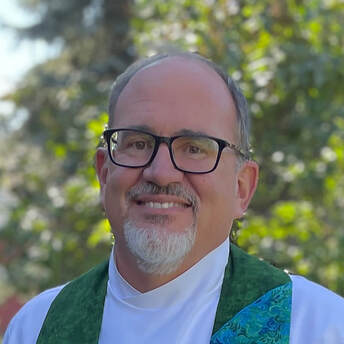 To my Fellow Members of Plymouth, Within our covenant with Hal is the opportunity for him to take a sabbatical every five years. Hal will be taking advantage of this opportunity as senior pastor and will be away from July 17 – Nov. 16, a period of 4 months. He will be engaging in a variety of enrichment activities, including some travel, as well as taking this period as an opportunity for renewal and refreshment. Ministerial sabbaticals are an important and exciting component in the rhythms of a pastor’s and a congregation’s life in ministry. The Leadership Council is excited for this opportunity both for Hal and for what the Spirit has in store for our congregation as we grow in faith and discipleship with each other. Pastoral coverage during this 4-month sabbatical will be accomplished through a combination of increased time from our current two associate pastors, Jane Anne and JT, and a short-term engagement of the Rev. Ron Patterson, a retired UCC clergyperson who has been our partner in ministry in previous occasions. Both Jane Anne and JT will be increasing their hours to full-time in recognition of their added responsibilities, Jane Anne for the first month (mid-July to mid-August) and JT for the entire sabbatical 4-month period. Ron will be here in a half-time capacity, from mid-August through the end of Hal’s sabbatical, in mid-November. We will not hear directly from Hal during this time. Ruth Billington has offered to be the point of contact if Hal has news he would like to share with us. Please join Leadership Council in wishing Hal a restful, renewing time away from us. Claudia DeMarco Plymouth Moderator AuthorClaudia has been a member since 2006 and involved in the Deacons Board, Celtic Spirituality group, Women's Friendship, Congregational Life Board, Associate Pastor Search Committee. I was reading the most recent issue of National Geographic and was gripped by the cover story on “The Power of Touch.” More than any other sense, touch is what we have been robbed of by the pandemic. Dacher Keltner of UC Berkeley studies the science of touch and says, “It’s our earliest and, you could argue, our fundamental language of social connection.” How have you experienced the reduction in physical touch since the onset of the pandemic 28 months ago? I remember being told by an elderly member that the hug I offered in the greeting line on Sunday morning was the only hug she got during the week. Social distance allows for a kindly bow or a nod or flashing a peace sign or Vulcan salute as we pass the peace, but I wonder how many of us long for a handshake with deep eye contact or an embrace that lets us know that we are seen and loved. We have a baptism coming up in a few weeks, and there is no way to baptize someone without touch! One of the most physically intimate moments each year is Ash Wednesday, when ministers apply a smudge of palm ash on the foreheads of worshipers. Think about it: who else would you let touch your face? I am so very grateful for the technology that allows us to livestream our services. It has literally been a lifesaver during the darkest days of the pandemic. I’m glad that it allows members who are traveling (or members living elsewhere) to worship with us. And I am seeing its shortcomings. There is something close, wonderful, and intimate about the experience of worshiping together in one place that gets lost online. You can look a fellow worshiper in the eye and say, “The peace of Christ be with you.” (Sometimes, you can even shake hands or hug them!) You can literally reach out to one of our guests in the pews and offer them a warm Plymouth welcome. You can have eye contact with the liturgist and the preacher. We eat the same bread and drink the same juice or wine at communion, and the minister and deacon can look you in the eye as we offer simple words of invitation. And you get lots of social stimulation at coffee hour, whether you want it or not! (BTW, look for wall-mounted hand gel dispensers!) I know that for some churches, live streaming is being embraced so fully that it may become the primary avenue to worship. Maybe it is because I am of a certain age, but I think online worship is important and second-best, and sometimes it simply can’t compare to being in person and being able to touch, even if it’s just a fist-bump or an elbow-touch. You never know how much your smile or greeting or simply your presence as a neighbor in the pew means to someone. If Woody Allen was correct that 90 percent of life is showing up, then your physical presence in worship is missed. Yes, we are still the body of Christ even when separated. But maybe next Sunday at our Outdoor Service in Rolland Moore Park, you’ll feel safe to come and worship with your Plymouth family. (Sorry…we can’t livestream from the park!) We have been deprived of so much by this accursed pandemic. I invite you to take baby step back to normal life as you are able. Reach out and touch someone (with an alcohol-prepped hand). Hugs! P.S. I’m having knee-replacement surgery on Thursday, so I’ll be away for several weeks as I recover and endure physical therapy torture. Prayers are most welcome!
|
Details
|
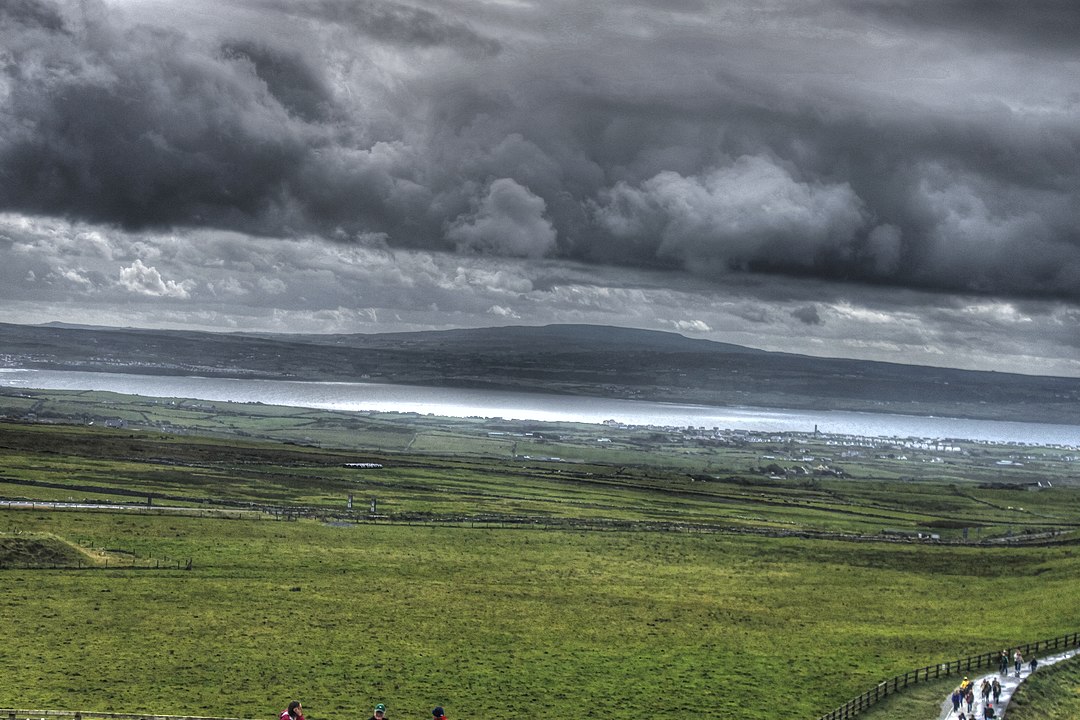
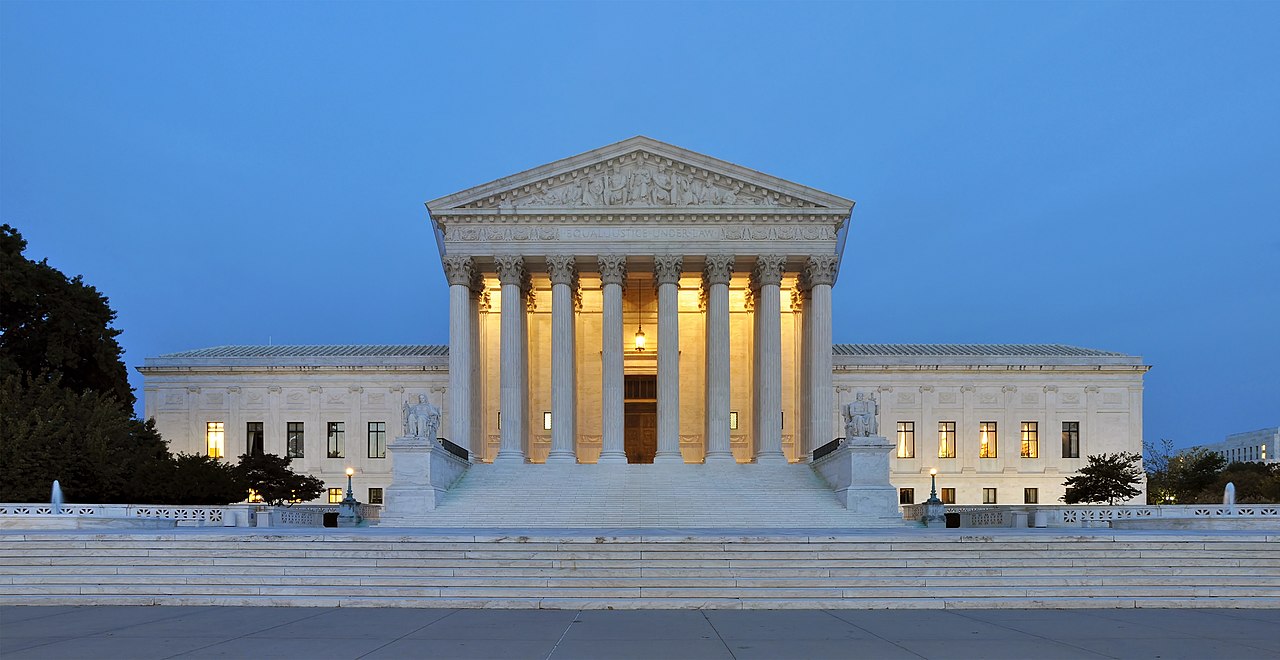

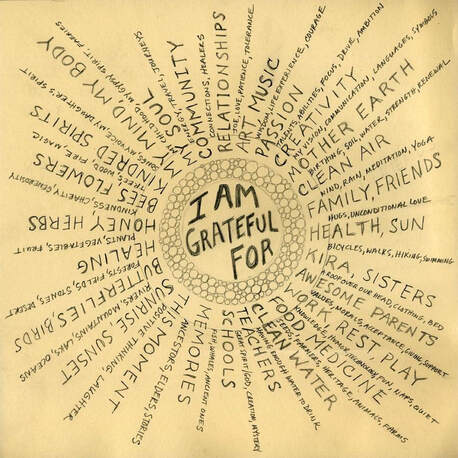


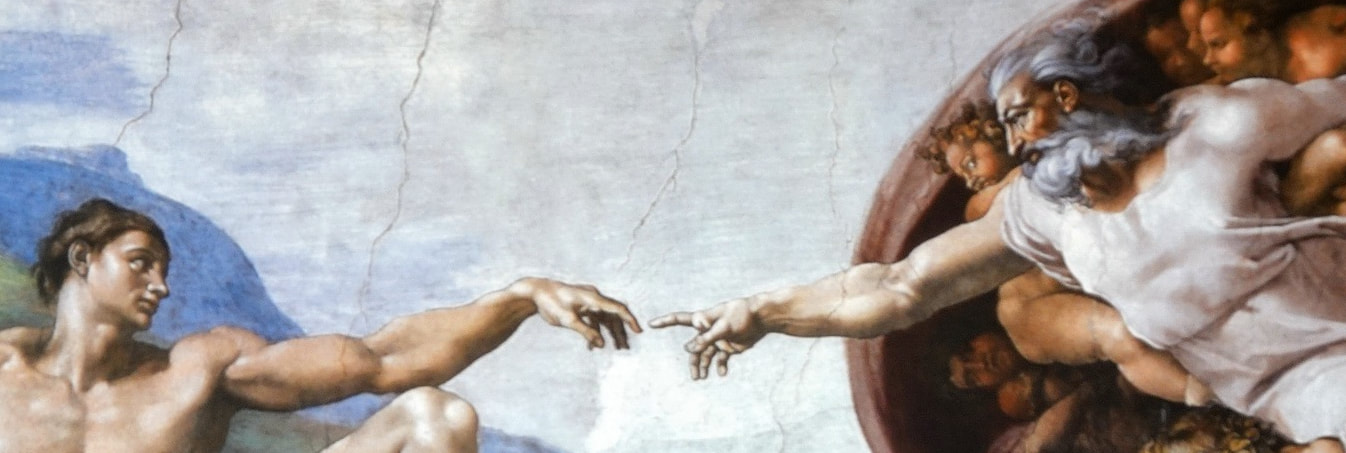

 RSS Feed
RSS Feed